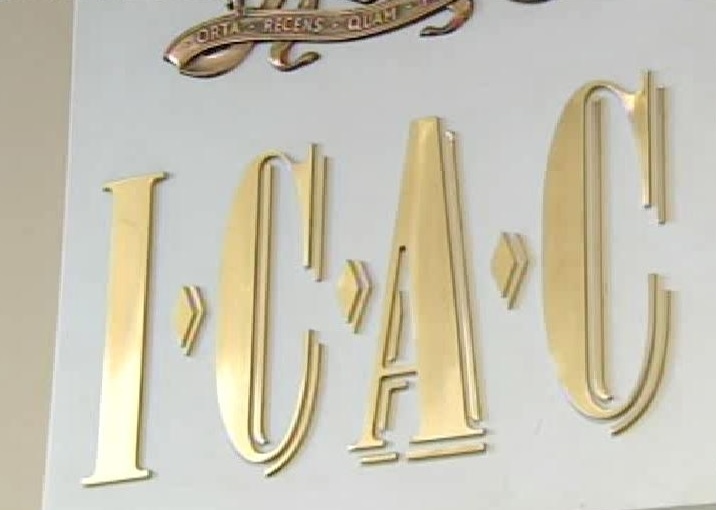
There is enough material on the public record to justify a judicial inquiry into the NSW government’s anti-corruption agency. The only thing preventing that is politics — and that could be about to change.
In a rational world, no government would tolerate any agency that conducted itself like the NSW Independent Commission Against Corruption. The abuse of power on show in ICAC’s pursuit of prosecutor Margaret Cunneen SC would have been the kiss of death for any other agency.
But with ICAC, there’s much more. The suppression of exculpatory evidence is now undeniable and suggests inadequate checks — internal and external — on its vast powers.
The weakness of ICAC’s systems of accountability, when coupled with those powers, amounts to a moral hazard of a kind that would be considered abhorrent if it were present in the police or the courts. At ICAC, it has fostered a culture of impunity.
The seriousness of this problem cannot be overstated. Until very recently, ICAC had accrued so much power it was on the verge of becoming a parallel system of justice that was unencumbered by the structural checks and protections for the individual that are the most striking feature of the mainstream courts.
Until last year it had a view of its own jurisdiction that meant, according to the High Court, it would have been able to launch an inquiry into matters as trivial as the theft of a garbage truck.
That danger has eased, thanks to legislative change that had been proposed by former chief justice Murray Gleeson and barrister Bruce McClintock SC. Those reforms, while beneficial, have done nothing to hold this agency and its officers accountable for past abuses.
ICAC’s zeal has destroyed careers and smeared people who, when judged by orthodox standards and processes, have been found to have done nothing wrong.
The list of innocent victims is growing: Margaret Cunneen and her family, Senator Arthur Sinodinos, former NSW police minister Mike Gallacher and businessmen Andrew Poole and John Kinghorn.
This agency has been aided and abetted in this dirty business by its friends in the media who are either incredibly gullible or who share the malicious mindset of their sources of information. The conduct of some of the Sydney media has been disgraceful.
Journalists are perfectly justified in obtaining information from all sorts of sources. That’s their job.
But in Sydney, some reporters have crossed the line by becoming little more than the public relations arm of this government agency. They have given ICAC’s findings a level of credibility that was never justified.
They have failed to take account of the fact that ICAC is not a court, does not apply the rules of evidence, uses procedures that would never pass muster in the mainstream justice system and is merely a trumped-up arm of the executive branch of government.
It is the bastard child of the Star Chamber of England — the institution that marks the high water mark of executive abuse of power.
If real courts and real prosecutors had been shown to have skewed legal proceedings, a judicial inquiry would be inevitable. Sooner or later, that is exactly what needs to happen with ICAC. Individuals who have abused their power and perverted this organisation’s procedures need to be identified and, if necessary, prosecuted.
Those who have breached the criminal law by feeding dirt to compliant reporters in order to damage people they do not like, also need to be found and prosecuted.
Structural change is needed to stamp out the moral hazards inside ICAC that are the root cause of what can only be described as noble-cause corruption. Prosecutions are needed to make it clear that nobody, not even ICAC officers, is above the law.
The reform agenda should start with much greater accountability. It was a mistake for parliament to limit the powers of the oversight committee of MPs who are supposed to hold this agency to account. It is also ludicrous to expect David Levine, the independent inspector of this agency, to fill the gap. He is a part-time officer with a tiny staff.
Nick Cowdery QC, a former director of public prosecutions, has proposed a checklist of reforms that could be the beginning of real change. What’s wrong with allowing anyone accused of wrongdoing to introduce relevant evidence to defend themselves?
The current arrangement, where ICAC can exclude information that undermines its narrative, looks like an import from North Korea.
The problem is clear and the reform agenda is taking shape. Yet nothing will happen until the political environment makes it possible for Premier Mike Baird to act.
That’s why Levine is important. His next report is likely to be made public by the end of the month and, when judged by his previous efforts, is likely to help the cause of reform.
Criminal and civil proceedings are also pending that will pass judgment not just on those accused by ICAC of wrongdoing, but on some of the commission’s most senior officials, including former commissioner David Ipp and Geoffrey Watson SC, who has been counsel assisting in several inquiries.
Watson might have inadvertently revealed more than he intended last week when he provided a written statement to this newspaper that formed the basis for a report on this page last Friday.
Parts that statement, in which he denied he and ICAC had suppressed exculpatory material, are inconsistent with the agency’s own records — as outlined in The Australian yesterday.
But if another part of his statement is accurate, it means ICAC not only declined to call a witness whose evidence could have helped Gallacher — it means the commission also declined to reveal the contents of a statement from that witness.
All of this adds to the case for a judicial inquiry. The wind has changed and is now blowing in another direction. It could soon reach hurricane force — and that will finally make it possible for Baird to act.
THE AUSTRALIAN Chris Merritt Legal Affairs Editor. FEBRUARY 5, 2016. 
(WTF) Used with permission.
